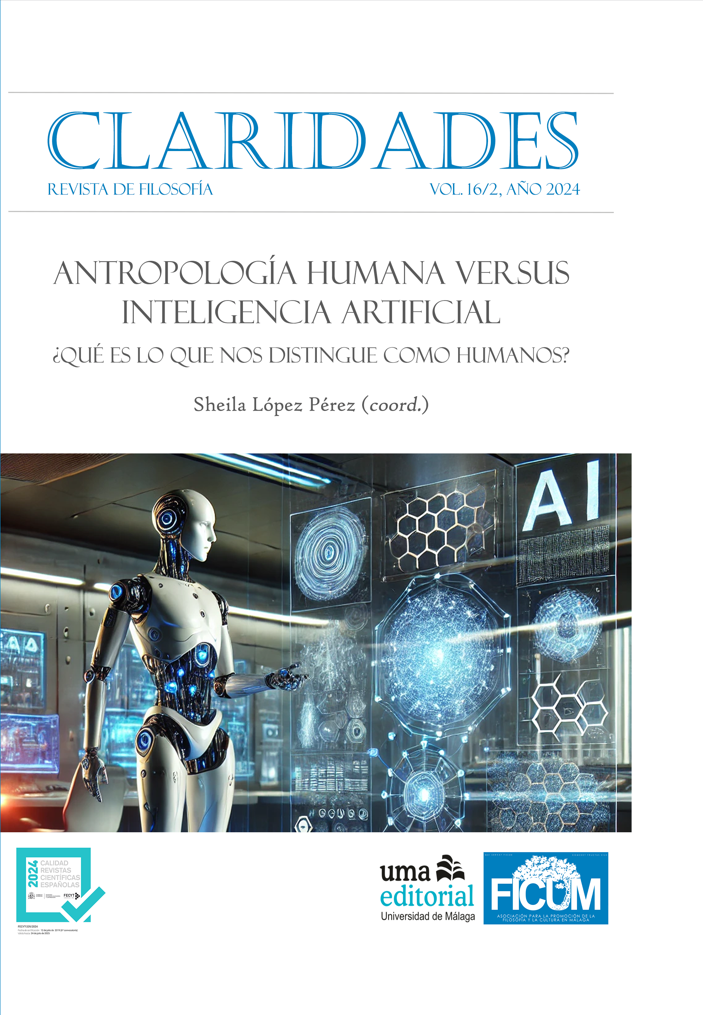Ni animales, ni máquinas: conocimiento humano y responsabilidad epistémica
DOI:
https://doi.org/10.24310/crf.16.2.2024.19186Abstract
The 19th century debate about the overlap between the animal and machine kingdoms has been transformed in the 21st century into a controversy about the overlap between human intelligence and artificial intelligence. If we differentiate between the three domains (animal, human and machine), and leaving aside the question of their possible overlapping, we could ask ourselves: how do humans know, do animals know, do machines know? The question that currently arouses most interest is the latter, which usually takes the following form: can machines know as humans do? I will argue that machines do not share with humans any of the four characteristics mentioned above (consciousness, freedom, normativity, responsibility), although they can simulate them. Animals, on the other hand, as far as we know, only partially share the first of the above-mentioned aspects. I will mainly rely on ideas of William Kingdom Clifford (1876-77) and Ernest Sosa (1991, 2007) to defend this view.
Downloads
Metrics
Publication Facts
Reviewer profiles N/A
Author statements
Indexed in
-
—
- Academic society
- N/A
- Publisher
- Asociación para la promoción de la filosofía y la cultura en Málaga (FICUM) y UMAEditorial
Downloads
Published
How to Cite
Issue
Section
License
Copyright (c) 2024 Maria Caamaño Alegre

This work is licensed under a Creative Commons Attribution-NonCommercial-ShareAlike 4.0 International License.
Esta revista provee acceso libre inmediato a su contenido bajo el principio de hacer disponible gratuitamente la investigación al público. Todos los contenidos publicados en Claridades. Revista de Filosofía, están sujetos a la licencia Creative Commons Reconocimento-NoComercia-Compartirigual 4.0 cuyo texto completo puede consultar en <http://creativecommons.org/licenses/by-nc-sa/4.0>
Es responsabilidad de los autores/as obtener los permisos necesarios de las imágenes que están sujetas a derechos de autor.
Los autores/as cuyas contribuciones sean aceptadas para su publicación en esta revista conservarán el derecho no exclusivo de utilizar sus
contribuciones con fines académicos, de investigación y educativos, incluyendo el auto-archivo o depósito en repositorios de acceso abierto de cualquier tipo.
La edición electrónica de esta revista esta editada por la Editorial de la Universidad de Málaga (UmaEditorial), siendo necesario citar la procedencia en cualquier reproducción parcial o total.

















6.png)
